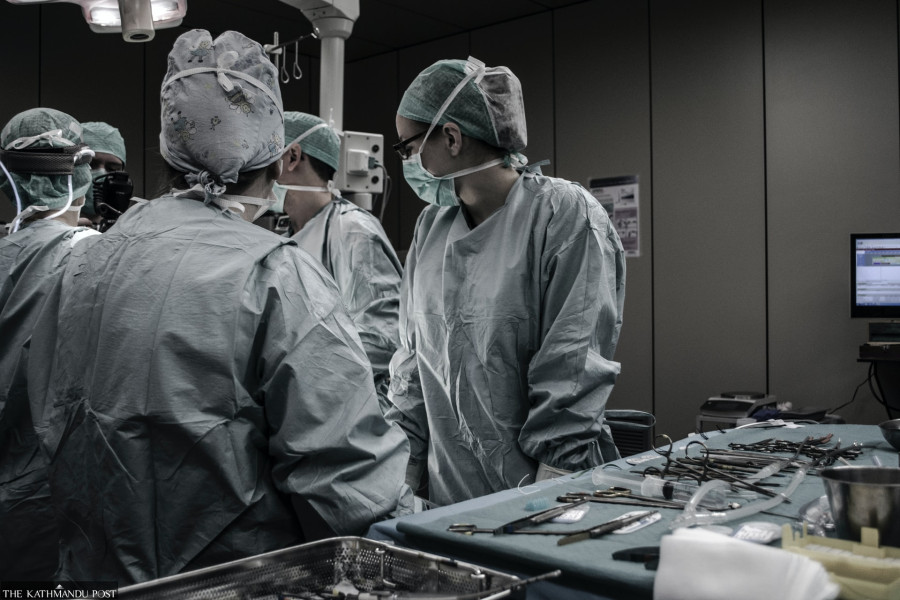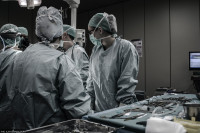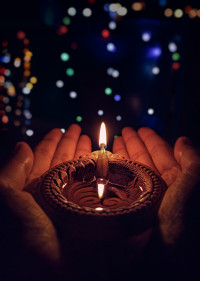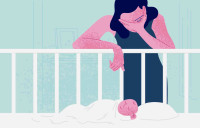As it is
If only I had known life better
At 28, I wanted to give my hundred percent to work, impress my senior officers with my different ICT abilities. Then I had a brain stroke that defied my understanding of everything.
Anit Chaudhary
In grade 5, when my computer teacher hit me with a stick for not using the keyboard properly to type in letters, my wounded pride picked itself together to dream about making it big in the IT engineering sector.
Since then, that’s what I have wanted to work towards.
I make websites for companies, manage servers and handle coding for them. The workload is daunting and taxing, but my work precedes almost everything in my life. Once you go into fixing the errors, you go down the rabbit hole. And the only way out of the hole is to find the correct fix to the problem. Otherwise, you are glued to your chair, scratching your brain to find what it is that is affecting the function key.
There is both pleasure and pain when it pertains to my work; working 18 hours a day has become the norm for me. My performance at work has become of the utmost importance; the sense of gratification that accompanies a completed task is unlike anything else. However, this workaholism—I have realised over the years—has drifted me away from my loved ones, and has severely impacted my personal life.
Lying on this hospital bed, as life for others moves on with a certain control, I try to connect the dots to understand where things went wrong.
Was it when I started slacking off on my diet, or when I undermined the necessity for adequate sleep? Was it this enslavement towards work that I gladly went along with—to be so devoted that I lost focus on what truly mattered at the end?
It wouldn’t be amiss to say that while being fully resolved to build a life and a promising career, I took everything for granted; my family and my health— the two most crucial aspects that would sustain my life. I would treat them as though they were an afterthought, often neglecting the urgency and importance with which I should have addressed them both.
And here I am now in physiotherapy, trying to get a better grip of my body, which consistently sent me all the warning signs, but I only ever cared about work deadlines.
About four months ago, my life came to a crashing halt when I had a brain stroke. I vividly remember being in denial of what had happened, deliberately discarding the eerie sensations that threw my body off balance.
I woke up one day to three fingers that went completely numb, but I didn’t stress over it much at the time and simply went along with my daily routine. I did drop by Patan hospital to check with an orthopaedic doctor but there was no one available—and I didn’t bother thinking twice and left.
That same day, when I visited a bank to deposit money, I struggled to recall my bank account numbers. I kept making mistakes, but still didn’t make much of it. . Then I returned to work again; however, because I had a throbbing headache which made it impossible to function properly, I went home thinking I could just sleep it off. The following day, I woke up with the left part of my face completely numb—it had happened overnight.
I was confused and still kept believing it was some sort of physical weakness. When a healthcare worker at Godawari Midcity Hospital checked my BP that day it was 130/100 mmHg. She asked me to stay in the hospital until the pressure subsided and for further check-ups, but even at the stage, I was more worried about all the work-related things I had to finish. When I returned home that day, despite my family pleading that I take bed rest, I went straight back to work.
When I tried to come down from my room the next day, my legs were wobbly. I could not feel my left arm and shoulders at all. In hindsight, had I not collapsed while using the restroom, I would not have decided to come to the hospital. When I reached the hospital and the doctors started examining me, I could not feel half of my body. I was then rushed to Annapurna Hospital in Maitighar.
It’s a terrifying feeling when you realise you cannot voluntarily move your body and have to depend on others for everything. Throughout the incident, I kept making an effort to do things independently as I didn’t want to burden my loved ones. I wanted to lift myself up, but every time I realised what had hit my life, I couldn’t bear to come to terms with my new reality.
Scientifically, a brain stroke happens when our blood supply to our brain is obstructed. In my case, thick blood had amassed in my brain and this clogged the oxygen and nutrients the organ needed to function. When that happens, our brain cells begin to die in split seconds.
But to me, it was harder to accept how things had gone downhill so quickly. One moment I was trying to collect myself together to meet my deadlines, and the next, I was lying in bed watching my parents talk to the doctor. I still tried to crack jokes and humour everyone, as I didn’t want to let anybody know how distant and disconnected I felt from everyone—and from the very life I was trying to build for myself and my family.
The doctors suggested surgery as I was young because treatment through medications still had the probability of a recurring stroke. The road to recovery was beyond hard; it was unrelenting.
Still, my parents didn’t dare to break down in front of me, but I couldn't help but feel the blues that inundated my cabin for days. They held onto their strengths while I pretended to hold onto my own feeble health. I sometimes thought to myself: death would have been better than this; what good is life when you cannot take charge of your own body, even to do something as basic as going to the toilet; it was the most crippling feeling in the world.
For my brothers, who were staying with me and helping me use the washroom and perform physical exercises, my routine and my dependency also started taking a toll on them. When we are unwell, we never suffer alone; our loved ones also have to live through the pain. And that is where things get more complicated because when you cannot turn things around immediately, you are simply waiting for a miracle to happen. And that longing only eats up your energy.
Soon, the frustrating recovery process took a mental toll on me, and I would spit mean words to my close ones when they tried to comfort me and hug me.
It wasn’t until I had seen more people like me at Naradevi Ayurvedic Hospital, trying with every bit of their frail strength to overcome their despair, that I started making an effort to better myself.
It’s funny how motivational videos that I only considered informational became a driving force to pull me out of my sorrow. I have watched Nicholas James Vujicic and Muniba Mazari’s motivational videos of how they accepted themselves and their physical disability and began working on themselves for hours.
I think I have now come to accept whatever happened to me. In the beginning, the repetition of exercises to gain control of my body tore me down every day. The irritation of the constant failure that I faced in not being able to command my body crushed me from within. The frustration I know and have been through is an irrevocable pain that will stay with me forever.
But seeing people—older and younger—try harder than me for their recovery, I couldn’t help but feel that I owe it to myself to make more effort for my comeback.
I can now walk by myself, but I still have to drag my left leg and limp to take careful steps. My left hand still feels weak and cannot hold onto things properly. When I sit, my left leg trembles to find balance. Sometimes I have trouble speaking for an extended period.
But I am lucky that my worst isn’t permanent. And I know for many that isn’t the case. I am grateful that I can work on myself. I am thankful to countless people—my parents, doctors, physiotherapists and counsellors—who have shown so much love and optimism to get me through this unremitting hard time.
There’s a fundamental saying in neurology coined by neurologist Camilo R Gomez, ‘Time is brain’, meaning the longer the treatment is delayed, the more damaging it can be. My adamant ignorance of what was happening could have cost me more.
But in taking time to heal from this trauma, I realise the many mistakes I have made throughout my life. While fixing bugs and errors in websites, I had ignored my own body’s error signs. In chasing after success, I forgot the most clichéd life’s tenets, ‘health is wealth’ and that ‘we sustain ourselves through the love of our family.’
And so, ‘time is brain’ applies not just to neurology but to life itself. One needs to handle time intentionally and deliberately—give time to what matters the most in the end. It’s you and your well being that should come first, and everything else is secondary; if only I had known life better.




 16.35°C Kathmandu
16.35°C Kathmandu










